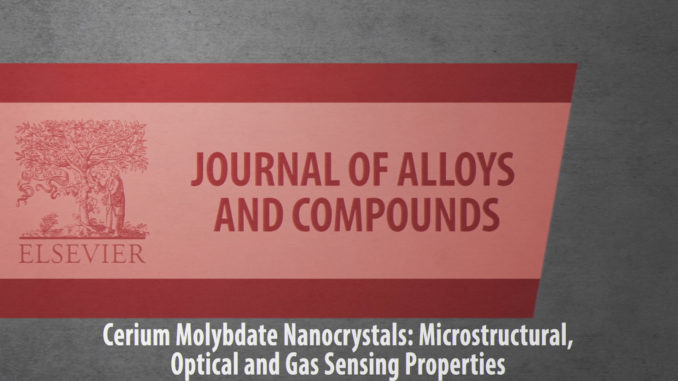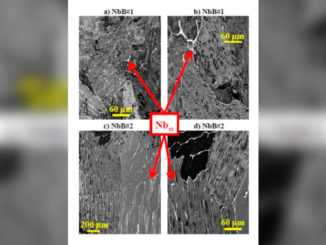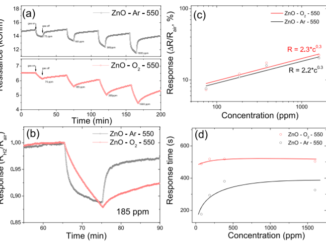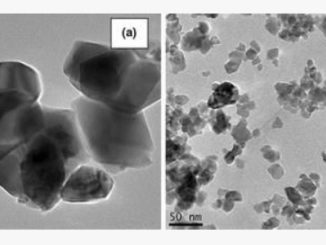
Cerium molybdate nanocrystals: Microstructural, optical and gas-sensing properties
Abstract: Metal molybdate compounds have attracted considerable attention due to their technological applications. Herein, we demonstrate the controllable synthesis of cerium molybdate (Ce2(MoO4)3) nanocrystals via the co-precipitation method followed by microwave-assisted hydrothermal (MAH) treatment at 150 °C during different times (15, 30 and 60 min). The effect of MAH treatment time on the microstructural, optical, and ozone gas-sensing properties of these nanocrystals was investigated. X-ray diffraction (XRD) and Raman spectroscopy measurements revealed that the samples presented a single-crystalline phase with scheelite-type tetragonal structure. Field emission gun scanning electron microscopy (FEG-SEM) images showed that the MAH conditions favored changes in the Ce2(MoO4)3 nanocrystal morphology. Photoluminescence (PL) measurements indicated a significant enhancement of PL emission with MAH time, suggesting an increase in the intrinsic defects formed during the MAH treatment. The gas-sensing performance of cerium molybdate nanocrystals towards sub-ppm ozone levels was also investigated. The experiments revealed complete recovery and good repeatability as well as good sensor response, which was improved in the sample synthesized at longer MAH time.
Author(s): Fernanda K. F. Oliveira, Anderson A. G. Santiago, Ariadne C. Catto, Luís F.da Silva, Ricardo L. Tranquilin, Elson Longo, Fabiana V. Motta, Mauricio R. D. Bomio.
Journal of Alloys and Compounds
DOI: https://doi.org/10.1016/j.jallcom.2020.157562
CDMF
The CDMF, hosted at the Federal University of São Carlos (UFSCar), is one of the Research, Innovation and Dissemination Centers (RIDC) supported by the São Paulo State Research Support Foundation (Fapesp), and also receives investment from the National Council Scientific and Technological Development (CNPq), from the National Institute of Science and Technology of Materials in Nanotechnology (INCTMN).




